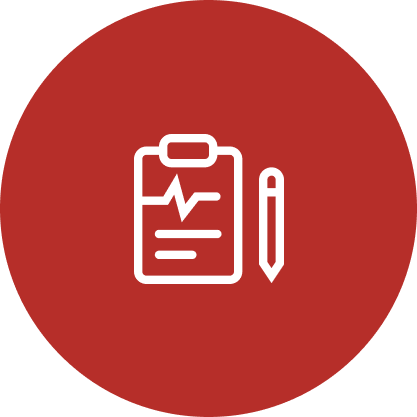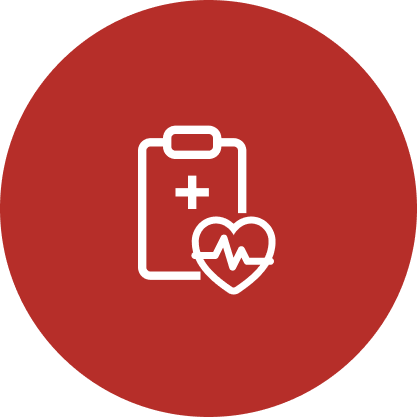24-Hour Holter Monitoring
Book An Appointment
Fill Up Form Below
True Care Cardiology
24 Hour Holter Monitoring
What is a Holter Monitor?
A Holter monitor is a compact, battery-operated device that continuously records your heart’s activity, including its rate and rhythm. Your doctor may recommend one if they need more detailed information about your heart's function than a standard electrocardiogram (EKG) can provide.
Twenty-four-hour Holter monitoring
records your heart's activity for a full day. You will wear the Holter monitor for 12 to 48 hours as you carry out your daily activities. This device features electrodes and electrical leads similar to those used in a regular EKG, but with fewer leads. It captures not only your heart rate and rhythm but also any symptoms you experience, such as chest pain or irregular heartbeats (arrhythmias). Holter monitoring is sometimes referred to as ambulatory electrocardiography. Other devices are available for measuring heart activity over longer periods.
An EKG is a test that evaluates your heart rate and rhythm, as well as any abnormalities affecting heart function. Since an EKG only captures a brief snapshot of your heart's rhythm, irregularities may go unnoticed during the test.
Abnormal heart rhythms and symptoms can be intermittent, making it essential to monitor them over a longer duration. The Holter monitor provides your doctor with insights into your heart's long-term performance. The recordings help assess whether your heart is receiving enough oxygen and if electrical impulses are functioning correctly, which may be indicative of arrhythmias.
If you are already being treated for heart issues, wearing the monitor can assist your doctor in determining the effectiveness of your medications or if adjustments are necessary. It can also help explain symptoms like dizziness, faintness, or sensations of a racing or skipping heart.
The Holter monitor is small, roughly the size of a deck of playing cards. Several leads are attached to the monitor, connecting to electrodes placed on your chest using a gel-like adhesive. These metal electrodes transmit your heart's activity through the wires to the monitor, where it is recorded.
You will wear a small pouch around your neck to hold the monitor, which should remain close to your body for accurate readings. Your doctor will provide guidance on reattaching any electrodes that may come loose.
Instructions will be given on how to care for your monitor and activities to avoid while wearing it, such as bathing, showering, or swimming.
You are encouraged to continue with your normal activities during the 24-hour Holter test and to keep a journal of your activities. This information helps your doctor correlate any changes in heart activity with your behaviors.
There are no risks associated with wearing the Holter monitor itself; however, some individuals may experience mild skin irritation from the adhesive. Be sure to inform the technician if you have any allergies to tapes or adhesives.
The 24-hour Holter monitor test is painless, but it is important to record any chest pain, rapid heartbeat, or other symptoms you experience during the monitoring period.
To ensure proper functioning, keep the Holter monitor dry. It is best to take a bath or shower before your appointment and avoid using lotions or creams. Steer clear of areas with strong magnetic or electrical fields, as these may interfere with the monitor's performance.
If there are misreadings or false positives, the monitor may need to be reapplied.
After the monitoring period, you will return to your doctor’s office to have the Holter monitor removed. Your doctor will review your activity log and analyze the monitor's data. Depending on the findings, additional testing may be necessary before a diagnosis can be made.
The Holter monitor may reveal issues with your medication effectiveness or indicate that dosage adjustments are needed, particularly in identifying asymptomatic arrhythmias.
Wearing a Holter monitor is a painless process and is one of the most effective ways to detect potential heart problems or other related issues.
If there are misreadings or false positives, the monitor may need to be reapplied.








